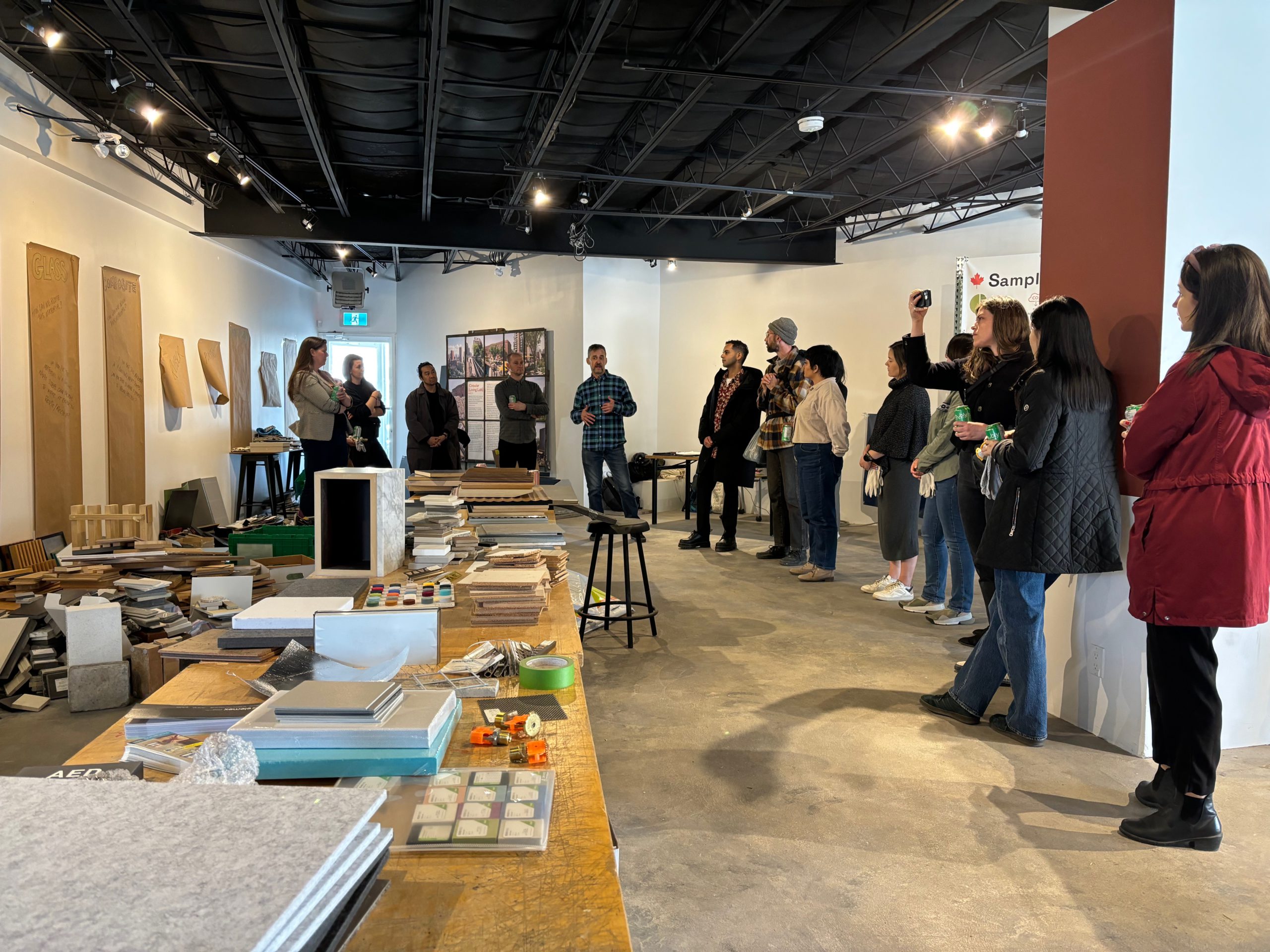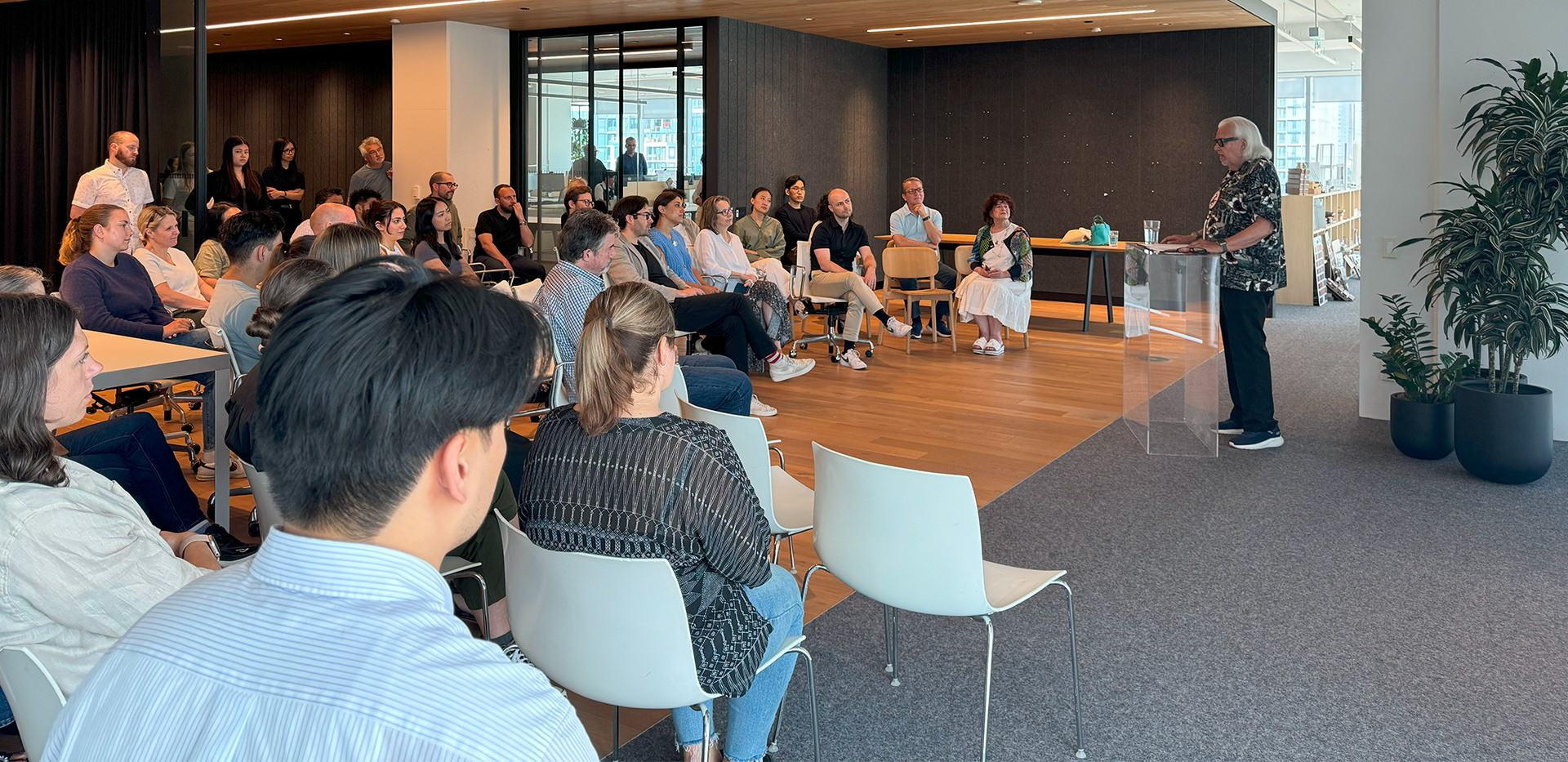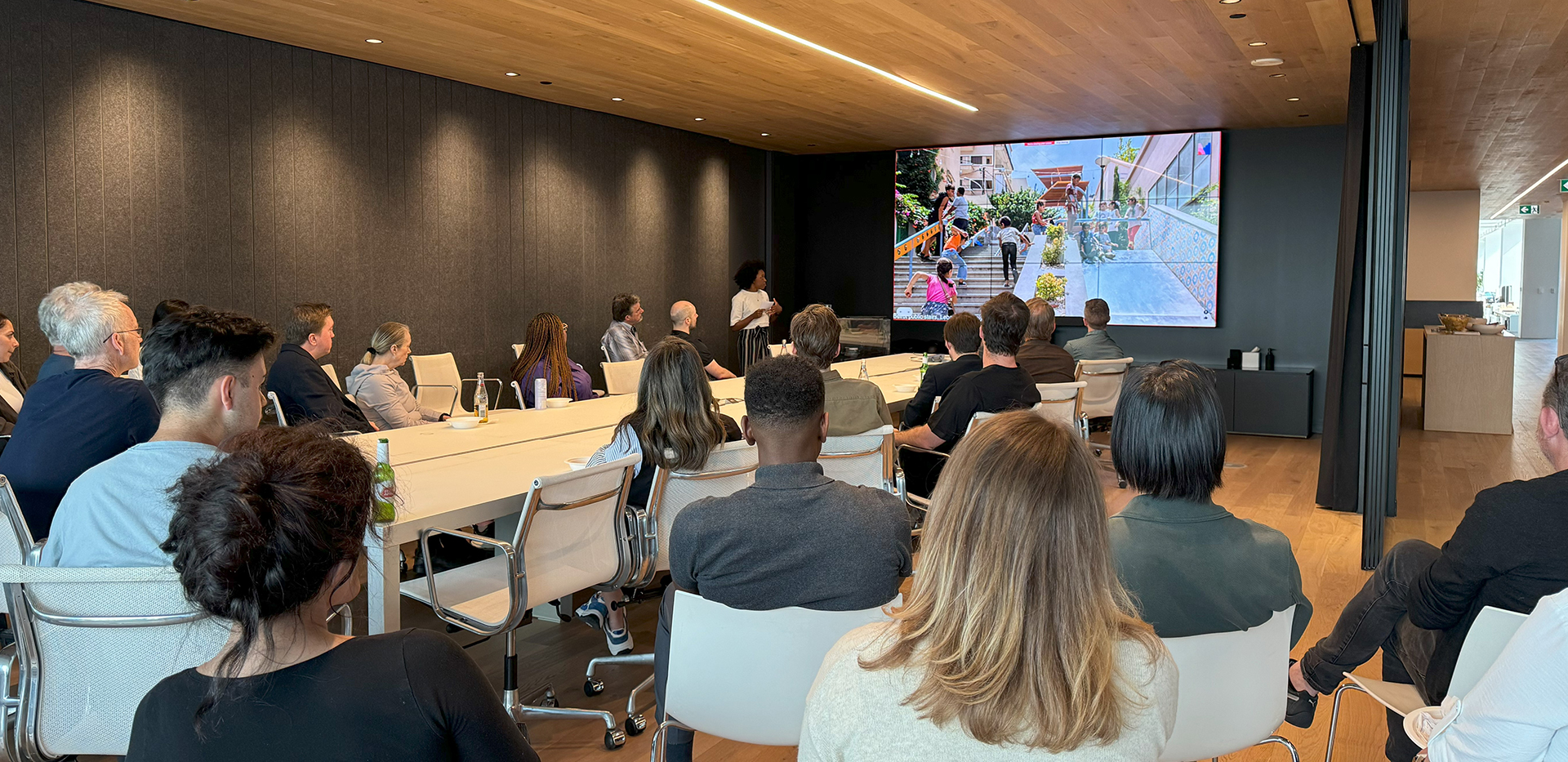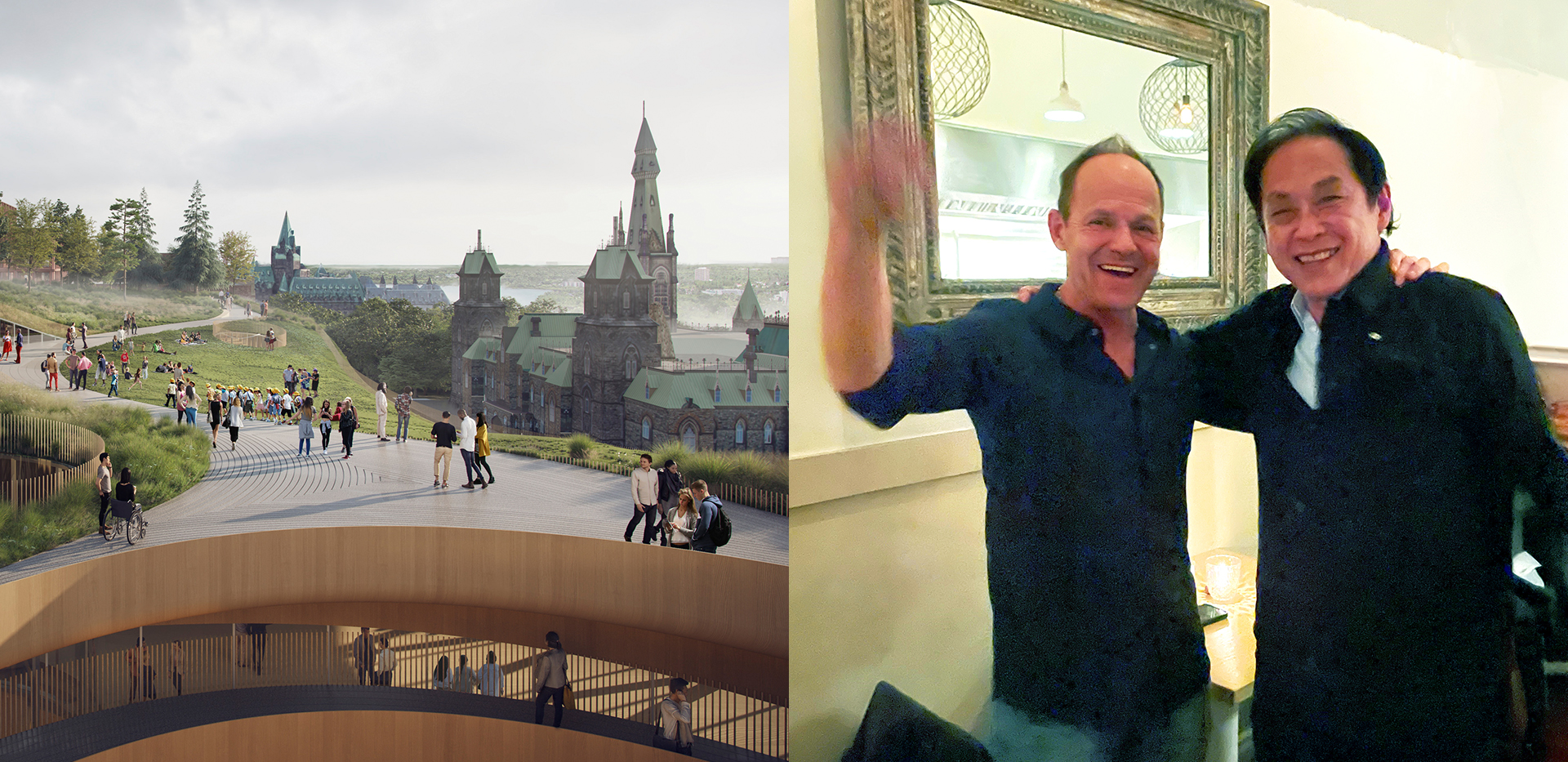Earth Day with KPMB Lab

Article content
On Earth Day, we joined MJMA, TAS, Viking Recycling, and Alex Lukachko, a building science consultant, for some spring cleaning! The Materials Library Spring Clean Out event, hosted by the Toronto Circularity Network, brought a number of likeminded partners (and their waste) together to discuss and practice material circularity in the built environment.
The Toronto Circularity Network, supported by KPMB Architects, is a network of professionals and stakeholders working to advance the emergence of the circular economy in the city’s design, construction, and reconstruction industry.
For its Materials Spring Clean Out event, participating firms brought materials from their sample libraries to be sorted for discarding or recycling, with the goal of diverting as many materials as possible from landfills. Reusing architectural samples like wood, glass, fabrics, etc., is a productive way to promote circularity and sustainable consumption, reduce waste, and decrease greenhouse gas emissions.
The built environment is responsible for approximately a third of all greenhouse gas emissions; finding ways to reduce our collective carbon footprint, whether through material reuse or other carbon-reduction strategies, will help create a more sustainable future for everyone.
Collaborating for a greener future
Earlier in the month, KPMB Lab facilitated a research roundtable discussion between the Lab, the Faculty of Engineering and Architectural Science at Toronto Metropolitan University (TMU), and the Department of Civil & Mineral Engineering at the University of Toronto (U of T).
Research from U of T highlighted the effect of the campus built environment on student wellbeing as well as the effect of housing built form and location on the environment. And PhD candidates from TMU shared tips on creating a toolkit for reflexive architecture that focuses on human-building interactions and moisture mitigation strategies in mass timber roof assemblies.
The group also shared research aimed at understanding and tackling climate-change-related issues in the built environment, including insights from KPMB Lab on reducing embodied emissions in interior design (focusing on workplace, healthcare, and housing) and developing low-carbon concrete.
Related News
Celebrating Indigenous History Month 2024 at KPMB
July 12, 2024Celebrating Pride Month 2024 at KPMB
July 12, 2024
)
)
)